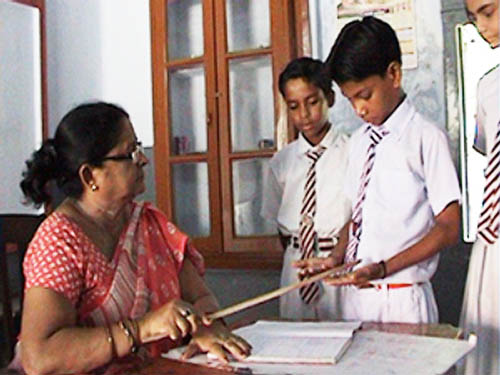Paulo Pinheiro, 2007, UN General Assembly envisioned a world without corporal punishment when he said, “Children are sick of being called ‘the future’. They want to enjoy their childhoods, free of violence, now”.

Corporate Punishment refers to infliction of physical pain or discomfort to a child by the use of different hitting forms. Also, it may include non-physical forms like humiliation, insults, public disgracing, belittling and more. There have been numerous human rights accords campaigning against this degrading act and have been trying to find out ways to identify states and prohibit them from practicing this in full form. Corporal punishment is not only a defilement of the rights of children but fervently acts against the very dignity and veracity of human existence. Hence, the importance to understand why corporal punishment should matter to us and why challenging it is requisite of our very being is inevitable.
Reflecting on some of the earliest records, the attitude towards corporal punishment dates back to how the earliest societies handed down educational legacy to modern Europe, based on religious and social attributes. As in ancient India, based on some earlier works, it was stated that “a pupil who have committed faults, may be beaten with ropes or split bamboo, but on the back part of the body only, never on a noble parts” (The Laws of Manu). However, without the attendance of much record of these hypothetical excuses, not much could be commented on except that it has been currently accepted without a debate.
So even if the immediate objective of such punishment was to culminate a breach and thereby set an example for others to thwart it from reoccurring again, research claims it to be an extremely damaging method. What looks like an act of regulation could actually invite some anti-behavioral tendencies in children. With the higher probability of misinterpreting the intentions of this kind of punishment, children may be implicitly made to believe that inflicting
pain is regular and the only manner of resolving disputes. This may further prevent such children from investing their trust on elders and could even sabotage interpersonal relationship between them. Also, the rate of teachers with their questionable use of such regulation in the present scenario is increasing at an alarming rate. There have been reported deaths of students in the past decade because of extreme harsh punishments, sometimes physically, and emotionally. Ministry of Women and Child Development in India had testified in the past few years about boys being more likely to face physical abuse than girls.
The clear message here is smacking might be effective in the short run but it should not be a universal method for maintaining discipline and enforcing learning. The lack of the appropriate techniques of developing endurance and instant conformity exposes the sheer ignorance of our Indian education system which finds itself in the pit for having atleast one in every three children as victims of corporal punishment. Hence it’s high time we feel accountable enough to introduce some cultured approach of teaching and regulating behavior without impairing a child’s nature and rights.































